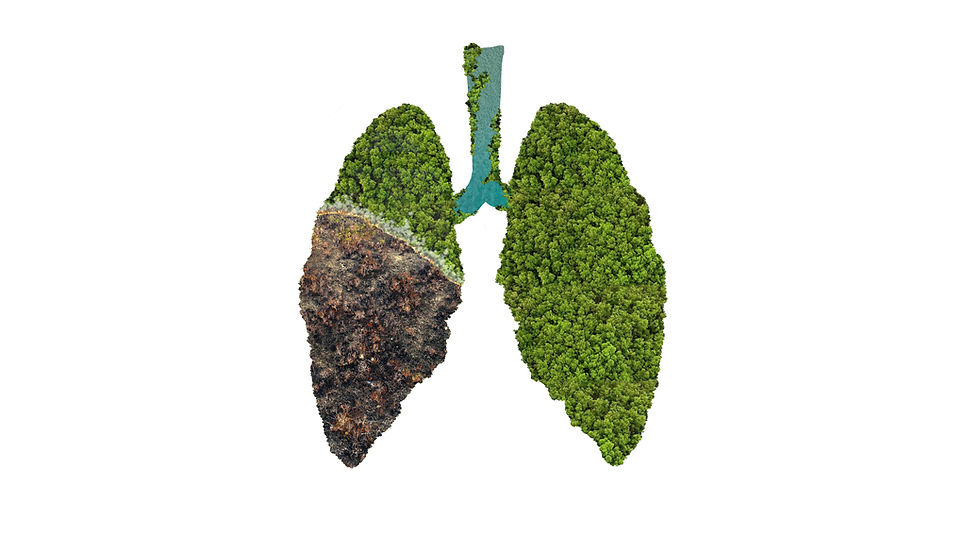
Home to a host of unique creatures and animals, the 55 million-year-old Amazon Rainforest is one of the most untouched pieces of Earth. The wildlife there is unlike anything else found on the planet. Home to rare animals like the Mountain Gorilla, the Jaguar, Black Panther, Scarlet Macaw, Poison Dart Frog, Black Howler Monkey, and the Green Anaconda, to name a few. The Amazon also accounts for 20 percent of our planet’s oxygen supply, and is known as “the lungs of the earth.” Wildfires threaten the natural habitats of many animals and the indigenous tribes which call the Amazon home.
Brazil is the largest exporter of beef. The exports help Brazil’s economy by generating 6.7 billion dollars as of 2018. Some speculate the Brazilian government, more specifically, Brazilian President Jair Bolosaro encouraged farmers and loggers to illegally start the fires so the country can use the space for cattle ranching according to Amalie Henden, writer for the Express.
INPE researcher, Alberto Setzer told Reuters:
“The dry season creates favorable conditions for the use and spread of fire, but starting a fire is the work of humans, either deliberately or by accident."
The space agency said it had detected more than 74,000 fires between January and August and more than 9,500 forest fires since in less than a week, mostly in the Amazon region (Henden).
French President Emmanuel Macron tweeted:
“Our house is burning. Literally. The Amazon rain forest - the lungs which produce 20% of our planet’s oxygen - is on fire. It is an international crisis. Members of the G7 Summit, let's discuss this emergency first order in two days! #ActForTheAmazon”
Brazil responded, “Not your house, our house.”
The group of seven countries which represent 58 percent of the global economy (G7) includes Canada, France, Germany, Italy, Japan, the United Kingdom, and the United States. The G7 offered 20 million dollars to Brazil to aid in stopping the wildfire. President Bolosaro rejected the funds, but he said he would re-consider if President Macron apologized for criticizing his handling of the fires according to Umair Irfan, writer for Vox.
President Macron responded to Bolosaro’s request stating in a press conference,
“I have great respect for the Brazilian people and can only hope they soon have a president who is up to the job.”
Nine countries share the Amazon basin—most of the rainforest, 58.4 percent, is contained within the borders of Brazil. The other eight countries include: Peru with 12.8 percent, Bolivia with 7.7 percent, Colombia with 7.1 percent, Venezuela with 6.1 percent, Guyana with 3.1 percent, Suriname with 2.5 percent, French Guyana with 1.4 percent, and 1 percent located in Ecuador according to a study titled “Land use Status and Trends in Amazonia.”
2.1 million acres lie on Brazil’s territory. The Rainforest is responsible for Brazilian weather patterns and conditions.
Brazilian President Bolosaro planned to develop the Amazon to promote economic advancement, and if the Amazon were to be developed, it would be classified as Brazilian territory according to Terrence McCoy and Marina Lopes, reporters for the Washington Post.
The perceived position by President Bolosaro is causing further damage to Brazil’s economy as countries are beginning to ban Brazilian beef imports. Finland asked the European Union to consider banning Brazilian beef imports over fears that cattle farming is leading to widespread deforestation (Washington Post).

The United Nations (UN) are calling for sanctions to be placed on Brazilian beef imports to preserve the Amazon. Germany and Norway may soon cut tens of millions of dollars in aid slotted for Amazon conservation projects.
Corruption lurks within the Brazilian government when it comes to the Amazon. Bolsonaro’s pick for environment minister, Ricardo Salles, was found guilty late last year of altering maps by designating zones of the Amazon as non-protected in an environmental protection program to benefit mining companies during his tenure running the environment agency of São Paulo state (Irfan).
In hopes the Amazon Rainforest makes a recovery a restoration during the next six years of almost 30,000 hectares, which corresponds to an estimated 73 million trees will commence. Thanks to a partnership among the Brazilian Ministry of Environment (MMA), the Global Environment Facility (GEF), the World Bank, the Brazilian Fund for Biodiversity (FUNBIO), Conservation International (CI-Brasil), the socioenvironmental initiative adopted by Rock in Rio, and Amazonia Live according to the World Bank. The stakes are high for the Amazon as deforestation continues. The Brazilian government recently placed a ban on any outdoor fire as a response to prevent any further fires from spreading.

To prevent wildfires from consuming the “Earth’s lungs” perhaps the UN could make the Amazon Rainforest a world conservation site and determine a way to make it financially viable to Brazil. Although there seem to be some actions the Brazilian government is taking to prevent fires in the Amazon, there needs to be a more worldwide awareness and planning to ensure that it is protected. There is no easy answer, but it is a problem that if not addressed, will eventually affect us all.
By Alex Fernandez
Sources:
https://web.archive.org/web/20160319140931/http://segamazonia.org/sites/default/files/press_releases/land_use_status_and_trends_in_amazonia.pdf
https://www.rainforest-alliance.org/articles/11-amazing-rainforest-animals
https://www.express.co.uk/news/world/1168299/amazon-rainforest-fire-how-did-amazon-fires-start-cause-deforestation-how-long-fire
https://www.vox.com/energy-and-environment/2019/8/30/20835091/amazon-rainforest-fire-wildfire-bolsonaro
https://www.washingtonpost.com/world/2019/08/23/amazon-rainforest-fires-brazil-world-reaction/
https://www.worldbank.org/en/news/press-release/2017/09/15/brazil-initiative-recovers-forest-lands-amazon


Comments